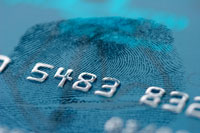Online Credit Applications Ripe For Fraud
We currently rely on easily counterfeited identification, and we transmit credit card applications using the phone, fax, Internet, or snail mail, all of which are relatively anonymous methods.
Fraudulent credit card applications are the most lucrative form of credit card fraud. Identity thieves love credit cards because they are the easiest accounts to open, and they allow thieves to quickly turn data into cash. Meanwhile, consumers don’t find out that credit cards have been opened in their names until they are denied credit or bill collectors start calling.
Identity thieves use any number of tricks to fool banks, retailers, and creditors into approving their online credit applications, extending credit that leaves the creditor on the line for losses.
It doesn’t need to be this way.
Instead of simply verifying the identification provided by fraudulent applicants, newer technologies allow creditors to verify the reputation of the computer or smartphone being used to submit the application. By instantly evaluating a device’s history for criminal activity, creditors can prevent fraudulent transactions.
“In addition to telling businesses that a single device has been involved in fraud, iovation can also determine if that device is associated with bad activity through its associations,” said, Jon Karl, VP of Corporate Development for iovation. “Beyond fingerprinting and reputation, we provide our clients with early warnings about devices visiting their website in real-time, based on the behavior of devices and accounts associated with that device.”
Device fingerprinting and device reputation analysis help identify bad guys during the application process, allowing creditors to avoid more expensive solutions.
Robert Siciliano, personal security and identity theft expert contributor to iovation, discusses identity theft in front of the National Speakers Association. (Disclosure)


























